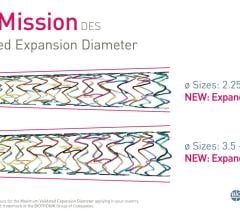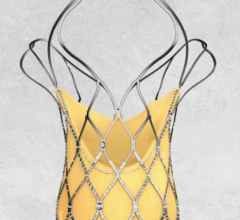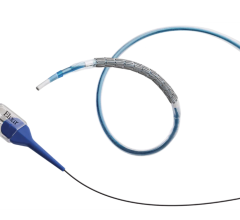
February 21, 2011 – Two drug-eluting coronary stent systems have been launched in India. Boston Scientific’s Promus Element everolimus-eluting stent system and Taxus Element paclitaxel-eluting coronary stent system incorporate the same novel platinum chromium (PtCr) alloy.
They also have the same stent design and advanced catheter delivery system.
India is one of the fastest-growing drug-eluting stent (DES) markets in the world, with the number of coronary drug-eluting stents implanted annually estimated at more than 150,000. In 2010, the company received approval from the Drugs Controller General of India to market the Element systems.
"The new platinum chromium alloy and stent design of the PtCr Element stent series represent significant innovations in DES technology," said Ashok Seth, M.D., Fortis Escort Heart Institute, New Delhi. "I believe the Element platform offers performance improvements that could simplify procedures and allow treatment of a broader range of patients."
The PtCr Element stent series features a platinum chromium alloy and stent design that combine to offer greater radial strength, flexibility and visibility while reducing stent recoil. The stent geometry helps create consistent lesion coverage and drug distribution while improving deliverability, which is enhanced by an advanced catheter delivery system. The higher density platinum chromium alloy provides exceptional visibility while enabling the use of thinner struts without compromising strength.
The Promus Element stent is being evaluated in the PLATINUM clinical trial, which completed enrollment of 1,532 patients in September 2009 at more than 140 sites worldwide. PLATINUM is a randomized, controlled, pivotal trial designed to support U.S. Food and Drug Administration (FDA) and Japanese Ministry of Health, Labor and Welfare (MHLW) approval. In September 2010, data were presented on 30-day and nine-month clinical outcomes and nine-month quantitative coronary angiography (QCA) and intravascular ultrasound (IVUS) supporting the safety and efficacy of the stent.
The Taxus Element stent is being evaluated in the PERSEUS trial, which reported 12-month results in March 2009, demonstrating positive safety and efficacy outcomes in workhorse lesions. The PERSEUS clinical program compared the Taxus Element Stent to prior-generation Boston Scientific stents in more than 1,600 patients in two parallel trials at 90 centers worldwide.
The company received CE Mark for the Promus Element in October 2009 and for the Taxus Element in May 2010.
For more information: www.bostonscientific.com


 July 02, 2024
July 02, 2024 









